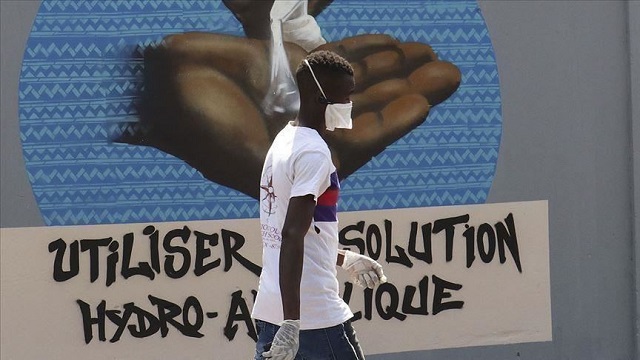
Nairobi, Kenya | XINHUA | Working as a motorbike taxi rider in Kenya’s capital Nairobi, Joseph Musau knows at least three acquaintances who have contracted COVID-19.
It was not until recently did he realize that COVID-19 was spreading at a faster speed in his country, where it took three months for the caseload to hit 6,000, but just weeks to the 20,000 mark.
The Africa Centers for Disease Control and Prevention (Africa CDC) has reported similar scenarios in South Africa, Egypt and Nigeria.
On Friday, COVID-19 cases increased to pass the one million mark on the continent, as South Africa alone accounts for around half of the continent’s total cases.
“Every time I am ferrying a passenger, I know my chances of getting the disease are high, even as I take precautions, but this is my job, I cannot stop,” Musau said.
MULTIPLE CHALLENGES
The World Health Organization (WHO) Regional Office for Africa said on July 30 that 41 African countries have reported nearly 14,000 health worker infections.
“The growth we are seeing in COVID-19 cases in Africa is placing an ever-greater strain on health services across the continent,” said Matshidiso Moeti, WHO’s regional director for Africa.
In many African countries, prevention and control measures in health facilities are not fully implemented, according to a WHO report published on July 23. Many health centers were found to lack the infrastructure necessary to implement key infection prevention measures or to prevent overcrowding.
The burden in many aspects of the disease is growing. In Senegal, blood supply has run low, according to the National Center for Blood Transfusion. A recession along with a severe economic contraction has taken place in South Africa, accompanied by huge job losses and the closure of businesses as citizens grapple with social, economic and mental hardships.
According to the United Nations Economic Commission for Africa, Africa’s growth this year will drop from an initial estimate of 3.2 percent to between minus 2.8 percent and about zero percent due to COVID-19, a dire situation that could throw an extra 20 million people into poverty in a continent where about 300 million cannot afford one meal a day.
CONTINENTAL EFFORTS
African governments have put up spirited efforts to contain the disease and its impact, with measures ranging from lockdowns, increasing testing, awareness to contact tracing and economic relief packages.
In Kenya, the government in June launched a COVID-19 mitigation contact center to offer psychosocial support to healthcare workers, and set up a home-based care initiative that can help lift the burden off the primary healthcare system and boost recoveries.
In Zimbabwe, a community kitchen run by Samantha Murozoki some 30 km away from capital Harare is providing relief to about 2,000 people, offering breakfast and supper.
On Aug. 1, Rwanda’s airports reopened to international travellers, more than four months after the central African nation suspended commercial passenger flights. Kenya government has also resumed international flights, while developing guidelines to ensure the move does not jeopardize the war against COVID-19 in Kenya.
However, seven countries in sub-Saharan Africa, which had started easing lockdowns, have experienced a 20-percent jump in cases over the past two weeks, according to a WHO Africa report published on July 30.
GLOBAL SUPPORT
Over the past few months, Chinese medical supplies have been streaming into the continent, coming to the aid of patients, doctors, nurses, and ordinary people.
The Chinese embassy in Ghana on Thursday delivered a consignment of medical supplies, including 16,000 masks and 100 infrared thermometers to Greater Accra Regional Coordinating Council. Last month, China handed medical supplies to the China-Uganda Friendship Hospital.
The WHO is also helping fill gaps in the supply of personal protective equipment. About 41 million items of personal protective equipment are shipped from China to cover the needs of 47 African countries, according to its report published on July 23.
The EU has also increased its support to the vulnerable in Zimbabwe, Namibia and Zambia by providing 64.7 million euros (76.5 million dollars) to provide life-saving assistance to impoverished households.
Similarly, the African Development Bank on July 27 approved grants worth about 25.1 million dollars to Somalia to boost government efforts to mitigate the impact of COVID-19.
Africa still has a chance to contain the COVID-19 pandemic on the continent once proper measures are taken, said John Nkengasong, director of the Africa CDC.
“There is still a huge opportunity on the continent to develop appropriate model actions to fight COVID-19,” he noted, reiterating his praise of China’s response to the COVID-19 outbreak.
******
XINHUA
 The Independent Uganda: You get the Truth we Pay the Price
The Independent Uganda: You get the Truth we Pay the Price



